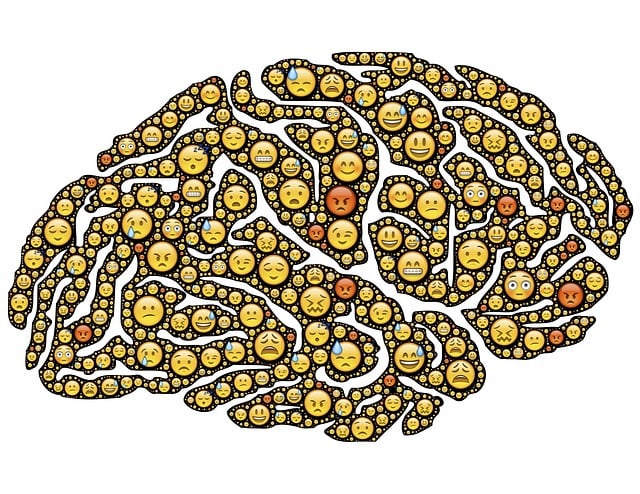The media significantly influences public perceptions of mental health, with accurate and sensitive portrayals reducing stigma and encouraging help-seeking behaviors, while stereotypes can lead to discrimination and hinder access to care. Organizations like Westminster Independent Medical Evaluations (WIME) play a crucial role in shaping media representation by providing unbiased assessments that challenge stereotypes and promote nuanced understanding. WIME's comprehensive evaluations empower healthcare providers to offer personalized therapy tailored to individual needs, enhancing cultural competency training and improving mood management strategies. By collaborating with media creators and mental health professionals, WIME helps normalize emotional healing, fostering empathy and understanding for those facing mental illness challenges. Adopting industry standards for responsible reporting, informed by organizations like the Royal College of Psychiatrists and insights from WIME, is essential to enhance media accountability and challenge societal misconceptions about mental health and therapy.
Mental illness representation in media significantly influences public perception and understanding of these conditions. This article delves into the multifaceted challenge of accurate depiction, exploring its impact on mental health. We discuss the crucial role of Westminster Independent Medical Evaluations in promoting realistic portrayals, emphasizing therapy and support systems as catalysts for positive change. Furthermore, we present strategies to enhance media responsibility in addressing mental illness, aiming to foster a more informed and compassionate society.
- Understanding the Impact of Media Portrayal on Mental Health Perception
- The Role of Westminster Independent Medical Evaluations in Promoting Accurate Representation
- Therapy and Support Systems: Fostering Positive Change through Media
- Strategies for Enhancing Media Responsibility in Depicting Mental Illness
Understanding the Impact of Media Portrayal on Mental Health Perception

The media has a significant influence on shaping public perceptions about mental health and illness. Depictions in films, television shows, news articles, and social media platforms can either perpetuate harmful stereotypes or promote understanding and empathy. When media portrays mental illness accurately and sensitively, it can initiate important conversations and reduce the stigma associated with seeking help. This positive impact is crucial for encouraging individuals to recognize their symptoms, consult healthcare professionals, such as those providing Westminster Independent Medical Evaluations Therapy, and embark on emotional healing processes.
Inaccurate or stereotypical media representations, however, can lead to misinformed public opinions, causing individuals with mental health challenges to face discrimination and a lack of support. This is particularly concerning when media portrays mental illness as a weakness or a character flaw, hindering efforts for those affected to develop self-care routines for better mental health and seek the appropriate therapy. Therefore, promoting accurate and diverse representation in media is essential, along with ensuring healthcare provider cultural competency training, to foster a more compassionate society that supports emotional well-being.
The Role of Westminster Independent Medical Evaluations in Promoting Accurate Representation

Westminster Independent Medical Evaluations (WIME) play a pivotal role in promoting accurate representation of mental illness in media. By conducting thorough and unbiased assessments, WIME contribute to a more nuanced understanding of various mental health conditions, challenging stereotypes often perpetuated by mainstream media. These evaluations provide critical insights into the complexities of mental illness, enabling healthcare providers to offer tailored therapy and support that respects individual experiences.
Furthermore, WIME’s involvement can enhance the cultural competency training for healthcare providers. By integrating knowledge about diverse cultural perspectives on mental health, these evaluations ensure that therapy practices are inclusive and sensitive. This is essential in preventing burnout among mental health professionals and fostering effective mood management strategies that resonate with a broader spectrum of patients.
Therapy and Support Systems: Fostering Positive Change through Media

Media has a significant impact on shaping societal perceptions about mental illness. While traditional portrayals often perpetuate stigma and misinformation, there’s a growing movement to challenge these norms and foster positive change. By integrating therapy and support systems into storytelling, media can offer a more nuanced understanding of mental health struggles. This shift encourages viewers to recognize the importance of emotional regulation and initiates conversations around trauma support services.
Westminster Independent Medical Evaluations (WIME) play a crucial role in this transformation by providing evidence-based therapy and assessment tools. These evaluations help identify specific needs, guiding the development of more accurate and healing media content. Through collaborative efforts between creators, mental health professionals, and organizations like WIME, emotional healing processes can be normalized, promoting a culture of empathy and understanding for those facing mental illness challenges.
Strategies for Enhancing Media Responsibility in Depicting Mental Illness

Media plays a pivotal role in shaping public perception about mental health, making responsible representation crucial. To enhance media accountability, several strategies can be implemented. Firstly, encouraging industry standards for reporting on mental illness, similar to those advocated by organizations like the Royal College of Psychiatrists, can ensure accuracy and sensitivity. This includes avoiding stigmatizing language and stereotypes, and instead, promoting nuanced narratives that reflect the diversity of experiences.
Incorporating insights from healthcare professionals, such as Westminster Independent Medical Evaluations, can lend authenticity to media content. By showcasing individuals’ journeys towards recovery, including their use of therapy and trauma support services, the focus shifts from diagnosis to resilience building. This approach not only educates viewers but also fosters empathy, challenging societal misconceptions about mental health.
In conclusion, addressing mental illness representation in media is a multifaceted challenge that requires the integration of various strategies. By understanding the profound impact of media portrayal on public perception of mental health, leveraging the expertise of Westminster Independent Medical Evaluations to promote accurate depiction, and emphasizing therapy and support systems, we can foster positive change. Furthermore, implementing enhanced media responsibility when portraying mental illness is crucial for creating a more empathetic and inclusive society. These collective efforts can ensure that media content not only entertains but also educates and supports those grappling with mental health issues.














